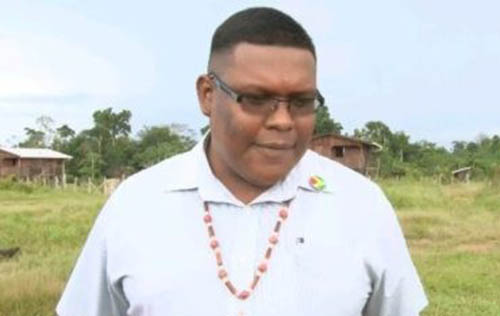With the number of COVID-19 deaths rapidly increasing in Region One, Regional Chairman Brentnol Ashley yesterday revealed that officials will commence mass screening of all senior citizens in the region.
In a statement yesterday, the Ministry of Health (MoH) disclosed that another person from Region One has died. “The MoH regrettably informs that as of 13:00hrs on September 22nd, 2020, one other person who tested positive for the novel coronavirus (COVID-19) has died. The latest fatality is a 74-year-old woman from Barima-Waini who died while receiving care at our medical facility,” the statement said.
An hour later, a ministry official confirmed that another person from the region had died. This along with an earlier reported death from the region will be reflected in the daily COVID-19 dashboard today. These two deceased are the 68th and 69th persons to die from COVID-19 in the country after becoming infected.
The ministry said contact tracing has commenced and Guyanese were reminded to observe all protocols of the COVID-19 Emergency Measures.
At least 12 persons from Region One who were infected with COVID-19 have died after contracting the disease.
Commenting on the recent increase of the COVID-19 death rate in the region, Ashley told Stabroek News that the majority of the persons who died only admitted themselves to the hospital when they were in a critical state.
“Many of these patients when they do come to the hospital they would’ve already been in a bad state, like having breathing complications, etc. When they come in, they are swabbed and while they are given other medical attention, they would succumb before the results would’ve come back,” he stated.
In addition, he disclosed that many of the person who died had underlying health conditions, such as diabetes and hypertension, that they were not being treated or seeking medical attention for. He further disclosed that when they started to develop symptoms of COVID-19, they thought it was just a normal flu. In one case, he said, the person died four days after developing flu-like symptoms.
“It’s quite unfortunate that families are losing their loved ones to this. We have seen in the last few weeks a number of senior citizens would’ve passed away and when they were swabbed and the results do return we found that they would’ve passed on because of COVID difficulties,” Ashley added before saying that as a result of the backlog when the deaths are reported, the persons would’ve already passed on days or even weeks prior to the confirmation of their results.
He added that he noticed that the backlog has been cleared and they are now receiving results faster than before and for this he was thankful.
When asked what is being done to stop the increase of COVID-19 deaths in the region, Ashely revealed that the Regional Health System is currently being transformed to accommodate ventilators and other necessary equipment into the hospital that will assist with the caring of patients.
“The government is working on putting in place ventilators and so forth into the hospitals in Region One so that we can be able to cope with patients or suspected COVID patients who may be displaying different complications when they do arrive at the hospital,” he said.
He also said that mass education sensitisation is being done and while this has always been ongoing, they have increased their efforts in Mabaruma and other communities.
Ashley also disclosed that the region in collaboration with the Ministry of Human Services and Social Security they plan to engage every single senior citizens across the region to have them screened and, if necessary, have them tested.
“What we found is that senior citizens are at the highest risk and when they do contract the disease their survival rate is very minimal. So we want to be a little proactive in ensuring that our senior citizens are screened and also so we could have the necessary results and they can get early medical care to ensure they survive. Our main goal is to ensure we minimise the death of persons who contract COVID-19, especially in the case of our senior citizens as the vast majority of our younger patients have recovered and have been integrated back into society,” the Regional Chairman said.






